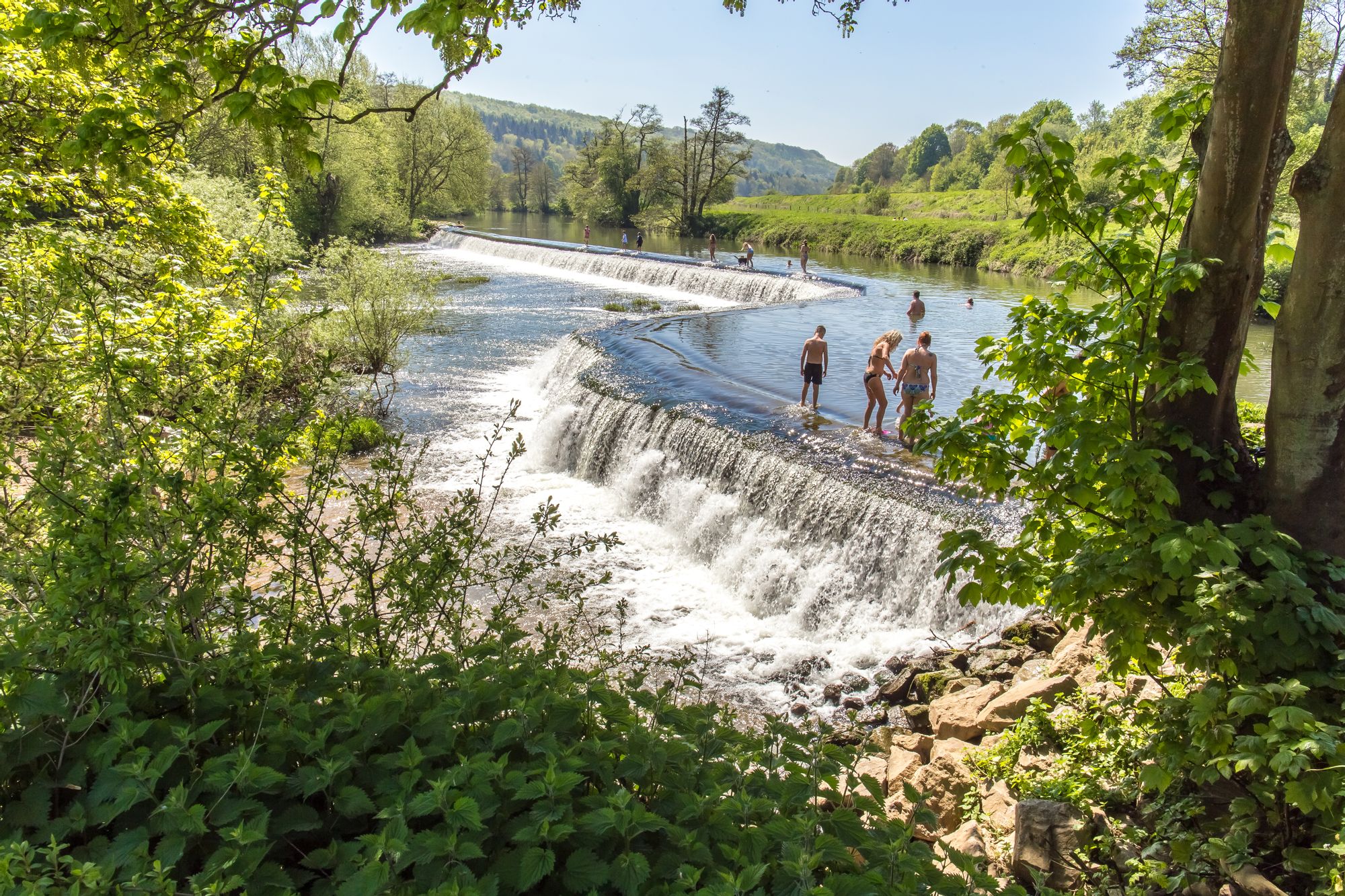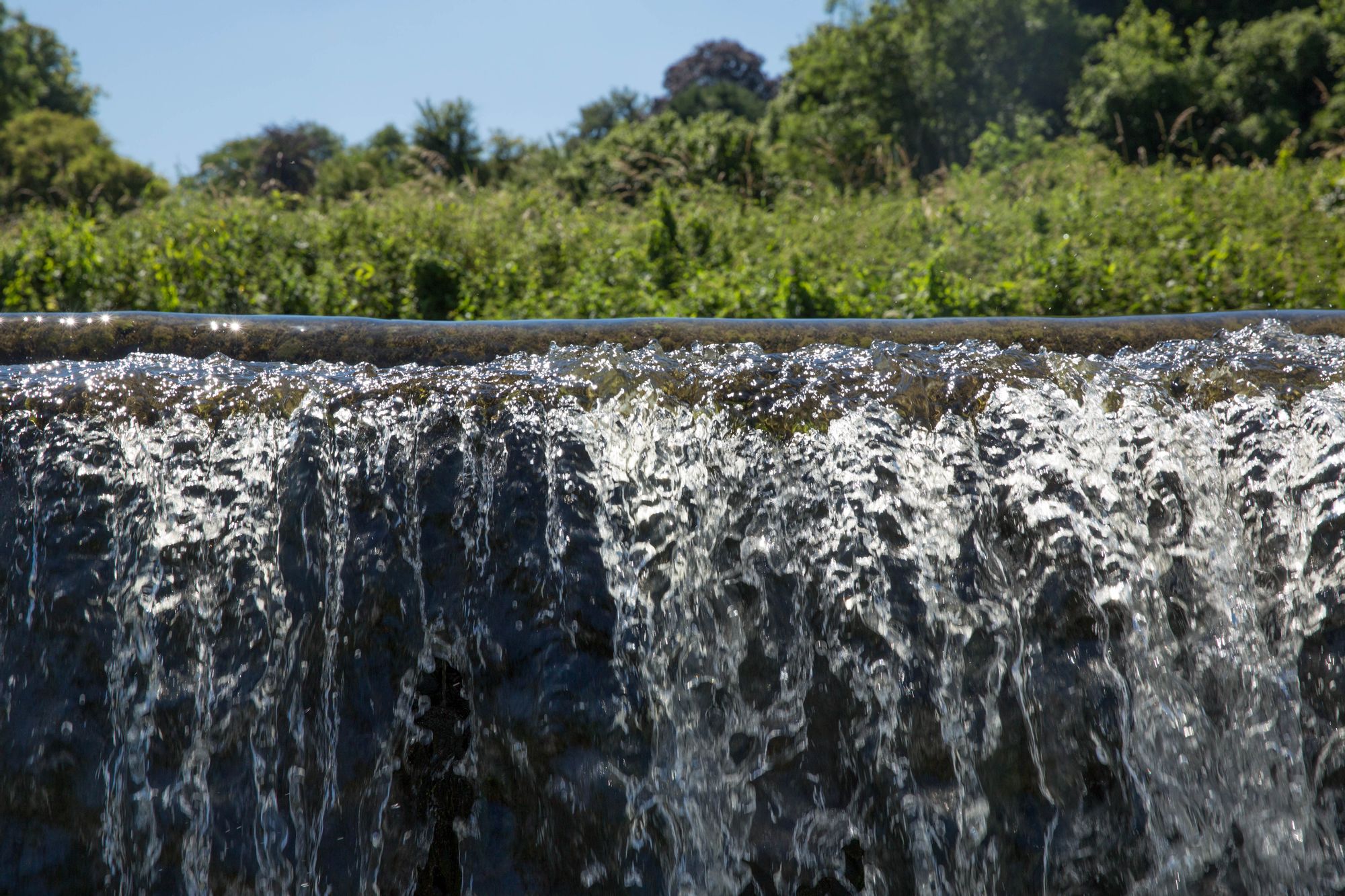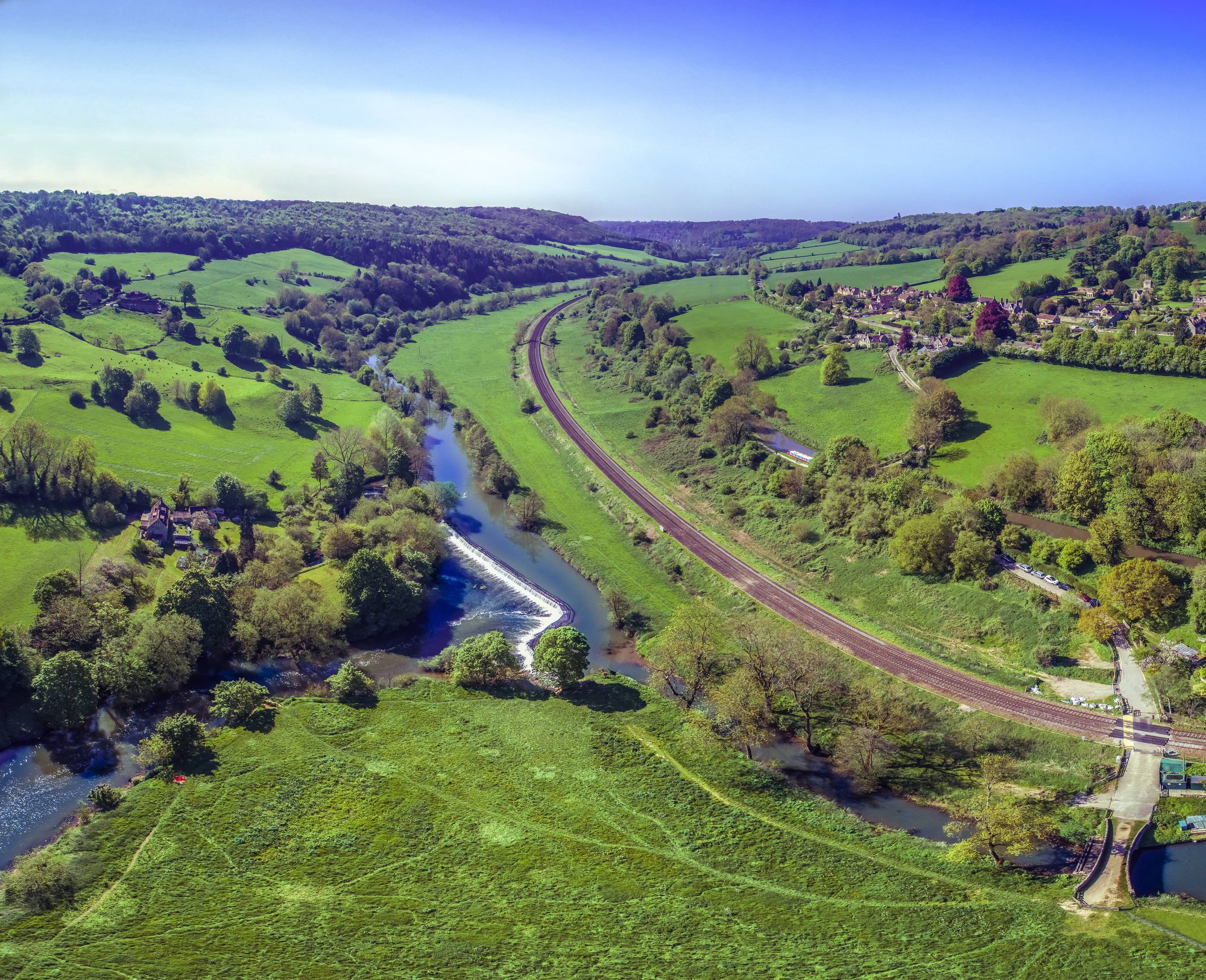
The wild swimmers fighting for England's polluted rivers
“They’re exactly the right people to be shouting and screaming.”
Before he bought his own island, Johnny Palmer naïvely assumed that English rivers were clean.
The island sits in the River Avon; it is a popular spot for swimming and recreation. But while Palmer owns the land, he does not own the river, and he was shocked when he learned that Wessex Water, the utility responsible for the region’s water supply, was regularly discharging raw sewage into the water.
“The water looked clear,” says Palmer. “In the summer, it looks like you could drink it. But don’t.”
There are some rivers – stagnant, smelly and murky – that would make any swimmer think twice. But others are as cool and clear as gin, belying the cocktail of chemicals, slurry and sewage within. Every single river in England is polluted, the Environment Agency revealed last month.
So Palmer decided to act. Earlier this year, he launched a new campaign group called Sewage Free Swimmers. It is a movement founded upon his own experience; he swims in the Avon every month of the year, including throughout winter. “The colder the better,” he says.
Palmer’s aim is to mobilise England’s growing army of wild swimmers to demand clean water and transparency around where and when UK rivers are being polluted.

The main offenders when it comes to river pollution are water companies and farmers, each of whom has attempted to shift the blame onto the other.
But Palmer was particularly horrified to learn that water companies are allowed to discharge untreated sewage into rivers through combined sewer overflows. These storm pipes stop toxic water from backing up into people’s homes during heavy rainfall, instead channelling it straight into rivers. It’s a solution for which we have Victorian engineers to thank.
The European Court of Justice has ruled that this system should only be used in “exceptional circumstances”. Yet a Guardian investigation revealed that overflowing sewage has become commonplace, with untreated human waste released for more than 1.5 million hours in 2019, contributing to the literally shitty state of England’s rivers.
“The campaign is one hundred percent focused on water companies, because they’re very big, they’re very obvious, and also they’re the ones taking money off people to process sewage. To me, it’s as though the waste companies that take your bins away were fly-tipping,” says Palmer.
Not all of England’s nine water companies are equally bad. Some have done a better job of cleaning up their act than others; more than half of the 48 serious pollution incidents in 2019 were attributed to just two companies, Anglian Water and Thames Water.
Nonetheless, the overall trend is dismal, with total pollution incidents rising almost every year since 2015, according to an Environment Agency report published earlier this month.

Sewage Free Swimmers has three goals.
Firstly, to completely eradicate this practice of storm overflows, so that raw sewage is no longer permitted to flow into rivers. Secondly, to create at least 100 sites with “designated bathing water status”, a standard of cleanliness set by the EU that currently applies to precisely zero rivers in the UK. And finally, to force water companies to release real-time data on sewage overflow so that swimmers can decide when to bathe.
“Water companies are unbelievably cagey about letting us know when this actually happens,” says Palmer. “Just tell us.”
The group is still in its infancy, with most of the action concentrated in the southwest, but Palmer hopes to eventually build a countrywide network of agitators – and, in the UK’s growing number of wild swimmers, he sees the potential for an influential activist community.
“They are a very passionate, active, courageous and adventurous group of people. They bridge this gap between slightly out-there hippies and very mainstream educated people,” says Palmer. “They’re exactly the right people to be shouting and screaming.” (Indeed, the fact that wild swimming has become the preserve of the middle class has prompted some criticism.)
“Visually, outdoor swimmers are good because they’re not wearing clothes; they leave their egos behind. When you see them in pictures, you can’t judge them. It becomes a more accessible message, and I think that’s really powerful,” he adds.

Palmer is not the only river campaigner on the scene. Feargal Sharkey, the former lead singer of the Undertones, is launching a legal campaign alongside Jolyon Maugham, QC, and his Good Law Project, which they hope will lead to a judicial review of how the Environment Agency and Defra have managed England’s rivers.
Campaigners and councillors in Ilkley, and Oxford have also pushed for bathing water status for stretches of river that are popular among swimmers. In the first case, this led to a government consultation, which closed a couple of weeks ago.
For Sewage Free Swimmers, the tactics are basically to “shout loud and rattle some cages” until the water companies start paying attention, says Palmer.
“These institutions are very good at ignoring people, but the second they start getting called out in the press, they suddenly get really engaged and want to talk to you.” It appears to be working so far; Palmer has already met with representatives from the Environment Agency, and has further meetings set up with his county council.
The second half of his strategy is to achieve designated bathing water status for Warleigh Weir, the stretch of water that sits alongside his Cotswold island, a move that he believes would give him the credibility to take his fight to the next level.
“I just want to make it much more part of the agenda, so that eventually the rivers throughout the whole of the UK are clean to swim in.”
All image credits: Johnny Palmer
Subscribe to our newsletter
Members receive our premium weekly digest of nature news from across Britain.
Comments
Sign in or become a Inkcap Journal member to join the conversation.
Just enter your email below to get a log in link.








